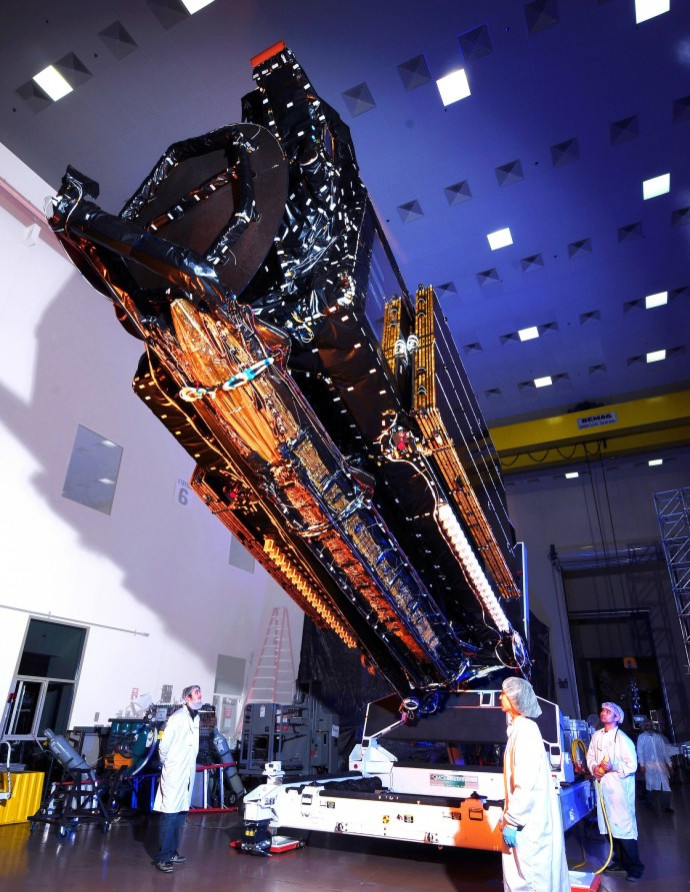TerreStar, Creditors Spar In Bankruptcy Court

TerreStar Networks will have to wait a bit longer before it can move forward with its hotly contested bankruptcy plan, losing a bid to get its disclosure statement approved quickly.
The mobile satellite services company, which filed for chapter 11 bankruptcy protection in October, was hoping to get its disclosure statement approved at a hearing Friday in New York State Bankruptcy Court. But Judge Sean Lane continued the hearings until Dec. 20, saying that the current schedule was a better fit to a pre-negotiated bankruptcy rather than a contested one.
Meanwhile the creditors and TerreStar locked horns over what information the company was willing to give them, as well as the speed with which TerreStar wanted to proceed with the restructuring.
A disclosure statement is filed by a company ahead of a restructuring, and has to outline its financial condition, creditors' risks and broadly, how it plans to revalue its debt. In TerreStar's case, the only creditor that liked what it saw was EchoStar, which came up with the original restructuring plan.
Under that plan, the holders of the senior secured debt will get 97% of the equity of the reorganized entity. The unsecured debt holders would get the rest, and the equity holders would be wiped out. EchoStar, which owns a majority of the senior debt, would have a majority stake.
No less than six different classes of TerreStar's creditors objected to its disclosure statement and its restructuring plan. For most creditors, the problem is just how the various entities that are included in the bankruptcy case are valued, and how those valuations affect recovery. TerreStar, meanwhile, argued that it had made good faith efforts to include everything requested in the disclosure statement.
All complained that in attempting to deal with the objections in a shortened time frame, TerreStar has ended up submitting no less than three revisions to the disclosure statement in the space of a week.
Arguing for Harbinger Capital Partners, which holds a major portion of TerreStar's 6.5% notes, attorney Debra A. Dandeneau said that the firm isn't asking for the debtors to do a complete economic analysis, but does want the creditors to have enough information to do it themselves.
For example, the entity holding the company's Canadian broadcast license agreed to allocate much of the bandwidth to TerreStar Networks. But she said it isn't clear how much of that license the creditors have a claim to, or how the value of the license is calculated. There's no real numbers or analysis, she said. What is the value assigned to the networks?
Other creditors raised similar concerns, and asked that a hearing be held to determine whether the cases of the various TerreStar entities should be consolidated or not.
TerreStar's attorney, Arik Preis, said he didn't believe that Harbinger knows as little as they say. Harbinger has been one of the most active traders of TerreStar debt, he said. They say 'we don't know what's in the plan,' but they've been trading on that.
According to Securities and Exchange Commission filings, Harbinger recently sold much of its TerreStar stock - bringing its holdings down to 10 million shares from 43 million -- and bought $5.9 million of TerreStar's 6.5% notes in November.
Another point of contention is the more than $100 million Sprint Nextel says it is owed for clearing out the spectrum that TerreStar uses. Sprint's lawyer, Eric Moser, argued that a big glaring omission is a clear indicator of what EchoStar intends to do with the business. There's no information more important to a potential investor than what EchoStar wants to do with it. Besides getting a majority stake, EchoStar has committed $100 million of preferred stock if the plan is approved.
Solus Capital, which holds some of TerreStar's 6.5% notes, said there was an issue with EchoStar's status as an insider - but what effect that might have is hard to determine because there was nothing in the disclosure statement that said exactly what EchoStar's holdings are. Scott Shelley, Solus' attorney, added that the restructuring plan as presented assumes some settlement has been reached. But whose settlement? he said. Neither the official committee, Harbinger, Solus, nor Sprint was party to any settlement.
Preis said TerreStar had made good faith efforts to fix the disclosure statement and address the creditors' objections. They keep on saying 'too fast, too fast, he said, when we actively took note of their objections they chastised us. He added that TerreStar has gone back to creditors each time objections were raised and has made revisions, and TerreStar can't say what EchoStar would do if it gets control of the company. We can't look into a crystal ball, he said.
People don't like the timing. We get it, he said. We said, 'give us money,' and Marathon said they would come up with a [debtor in possession] proposal. Nothing. If someone wants to give us a DIP we're open to that.
© Copyright IBTimes 2024. All rights reserved.





















